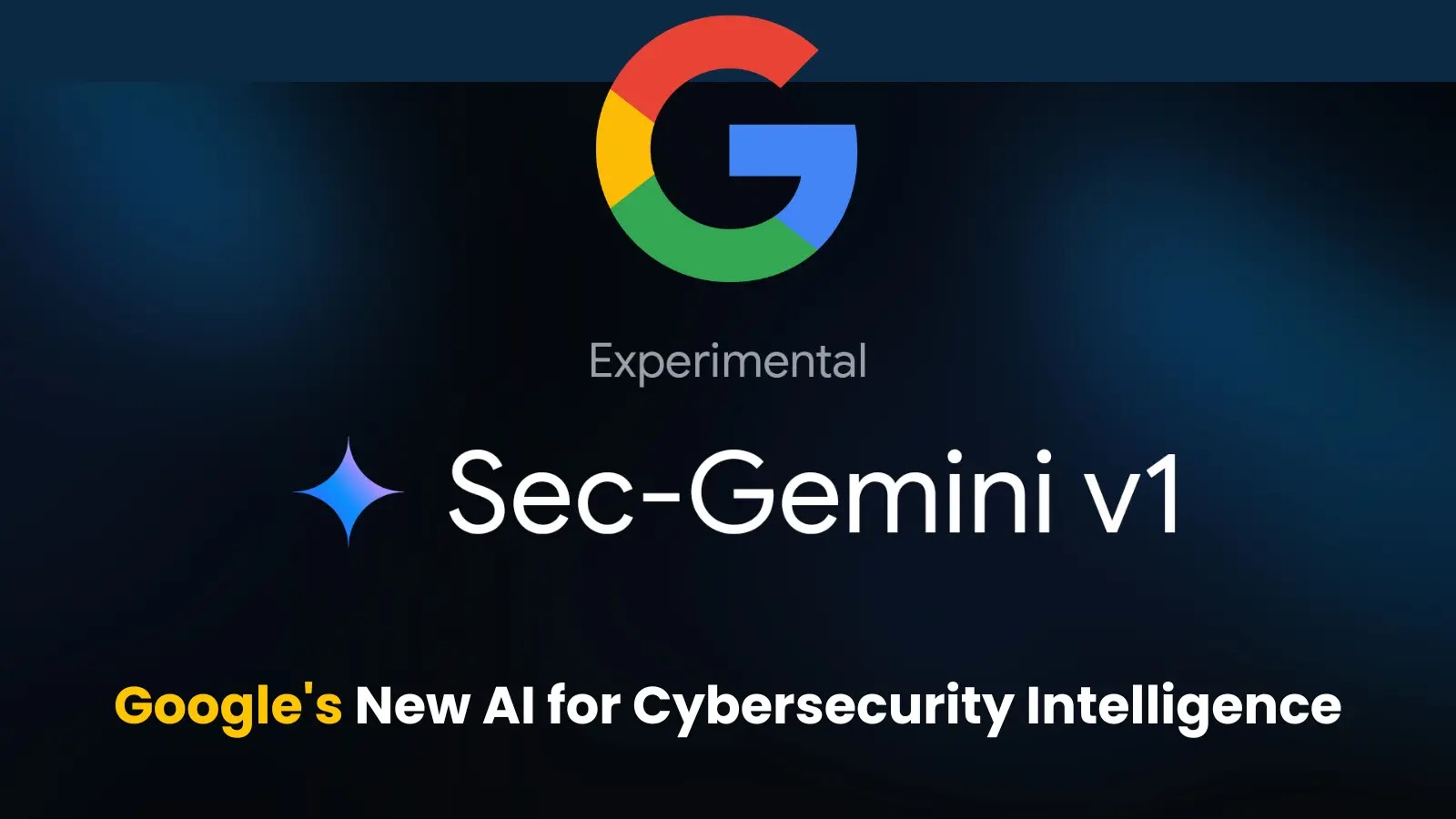Sec-Gemini v1 – Google’s Latest AI Model for Cybersecurity Threat Insight

Introduction to Sec-Gemini v1
Google recently launched Sec-Gemini v1, an innovative AI model aimed at transforming cybersecurity operations. This advanced tool provides enhanced capabilities for threat analysis, vulnerability assessment, and incident response. The project is led by experts Elie Burzstein and Marianna Tishchenko and seeks to address the imbalance in cybersecurity—where attackers only need to find one vulnerability, while defenders must protect entire systems from numerous potential threats.
Addressing the Challenge of Cybersecurity Asymmetry
Understanding Cybersecurity Gaps
Traditional cybersecurity measures struggle against this fundamental challenge: defenders must secure against all possible attacks, while attackers require just one entry point to succeed. Sec-Gemini v1 aims to change this dynamic by employing advanced AI capabilities to give security professionals enhanced tools for their efforts.
Features of Sec-Gemini v1
- Integration of Real-Time Data: The model combines live data from sources like Google Threat Intelligence (GTI) and Mandiant Threat Intelligence with information from the Open-Source Vulnerabilities (OSV) database.
- Contextual Vulnerability Mapping: By using this integrated data, Sec-Gemini v1 can identify vulnerabilities in real-time and correlate them with specific attack patterns associated with known threat actors.
With these capabilities, the model provides security teams with actionable insights during incident investigations, allowing them to respond more efficiently to threats.
Improved Incident Response with Advanced AI
Enhancing Investigation Processes
When analyzing security breaches, such as those associated with the state-sponsored group Salt Typhoon, Sec-Gemini v1 identifies the vulnerabilities exploited in the attacks and references historical attack strategies. This process significantly reduces the time analysts spend gathering information from various sources, enabling quicker responses to ongoing threats.
Focus on Root Cause Analysis
Sec-Gemini v1 excels at tracing incidents back to their origins, pinpointing specific issues like misconfigurations or unpatched software vulnerabilities. Each incident is classified within the Common Weakness Enumeration (CWE) framework, improving the overall understanding of security issues.
Benchmark Performance in Cyber Threat Intelligence
Sec-Gemini v1’s Leading Metrics
Sec-Gemini v1 has shown impressive results, surpassing existing models in important cybersecurity benchmarks. Here are some key achievements:
- CTI-MCQ Assessment: Achieved an 11% improvement in threat intelligence evaluation.
- CTI-Root Cause Mapping: Demonstrated a 10.5% increase in performance.
These achievements highlight the model’s capacity to analyze vulnerability descriptions, accurately link threats, and suggest prioritized remediation actions.
Real-Time Knowledge Integration
Unlike traditional AI tools that utilize static datasets, Sec-Gemini v1 incorporates continuous updates from OSV and Mandiant. This feature ensures that its recommendations remain relevant by considering new exploits and zero-day vulnerabilities. During tests, the model identified over 94% of critical vulnerabilities associated with ransomware campaigns in 2024—a notable improvement over competing systems.
Early Access and Future Aspirations
Collaborative Defense Initiative
To maximize its potential, Google is providing early access to Sec-Gemini v1 for research institutions, NGOs, and cybersecurity professionals. This initiative promotes a cooperative approach to cybersecurity, recognizing that global threats require combined efforts.
User Integration and Feedback
Participants will receive access to the model’s API, allowing them to incorporate it into their existing threat detection and incident response systems. Google emphasizes that Sec-Gemini v1 is designed to complement, not replace, human expertise. By automating routine tasks like log analysis and eliminating false positives, analysts can concentrate on strategic initiatives.
Early adopters are also encouraged to provide feedback, which will help refine the system, especially concerning edge cases such as social engineering tactics or exploits involving Internet of Things (IoT) devices.
With the introduction of Sec-Gemini v1, Google aims to establish a cutting-edge standard for AI-based cybersecurity tools that continue to evolve in tandem with emerging threats.






